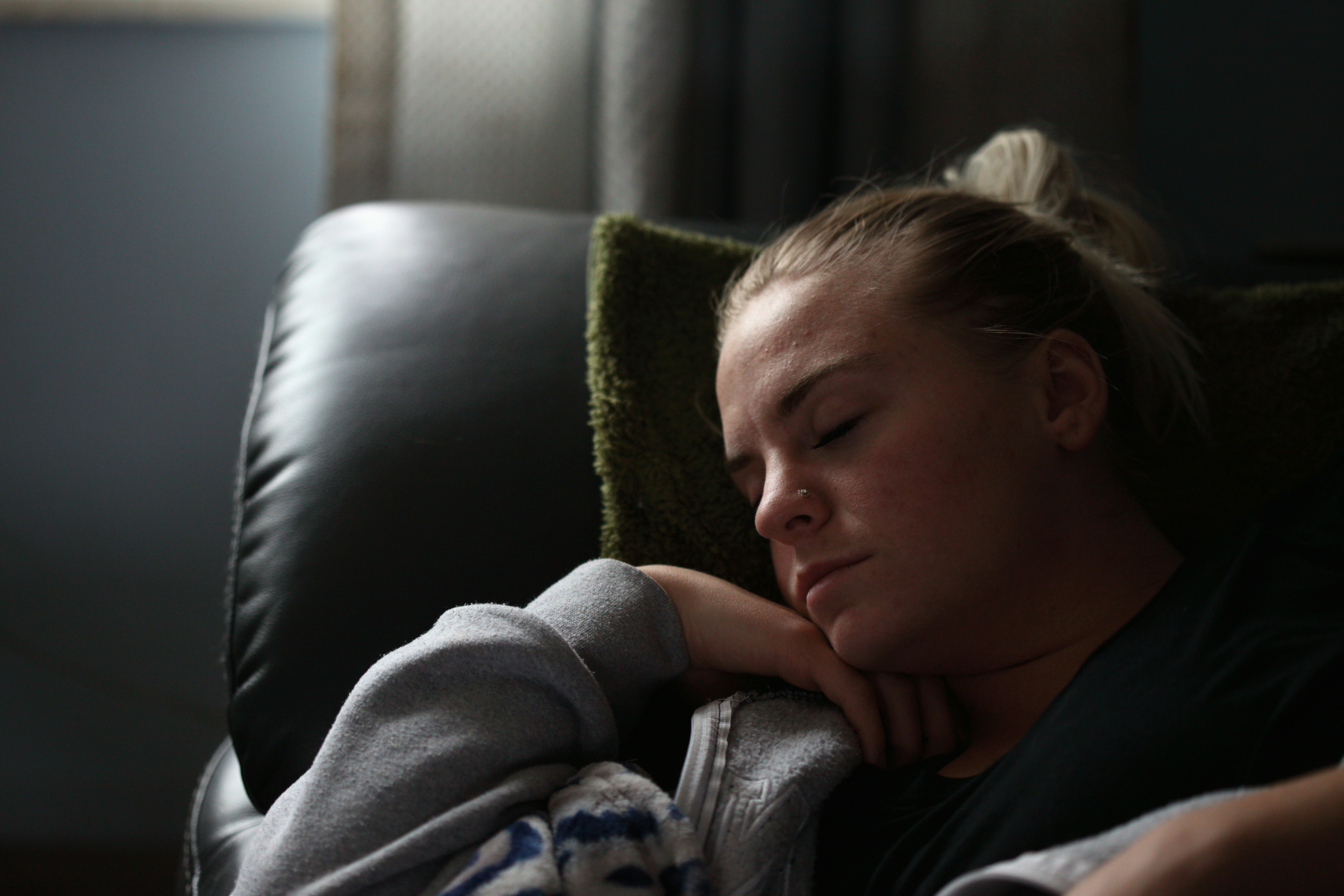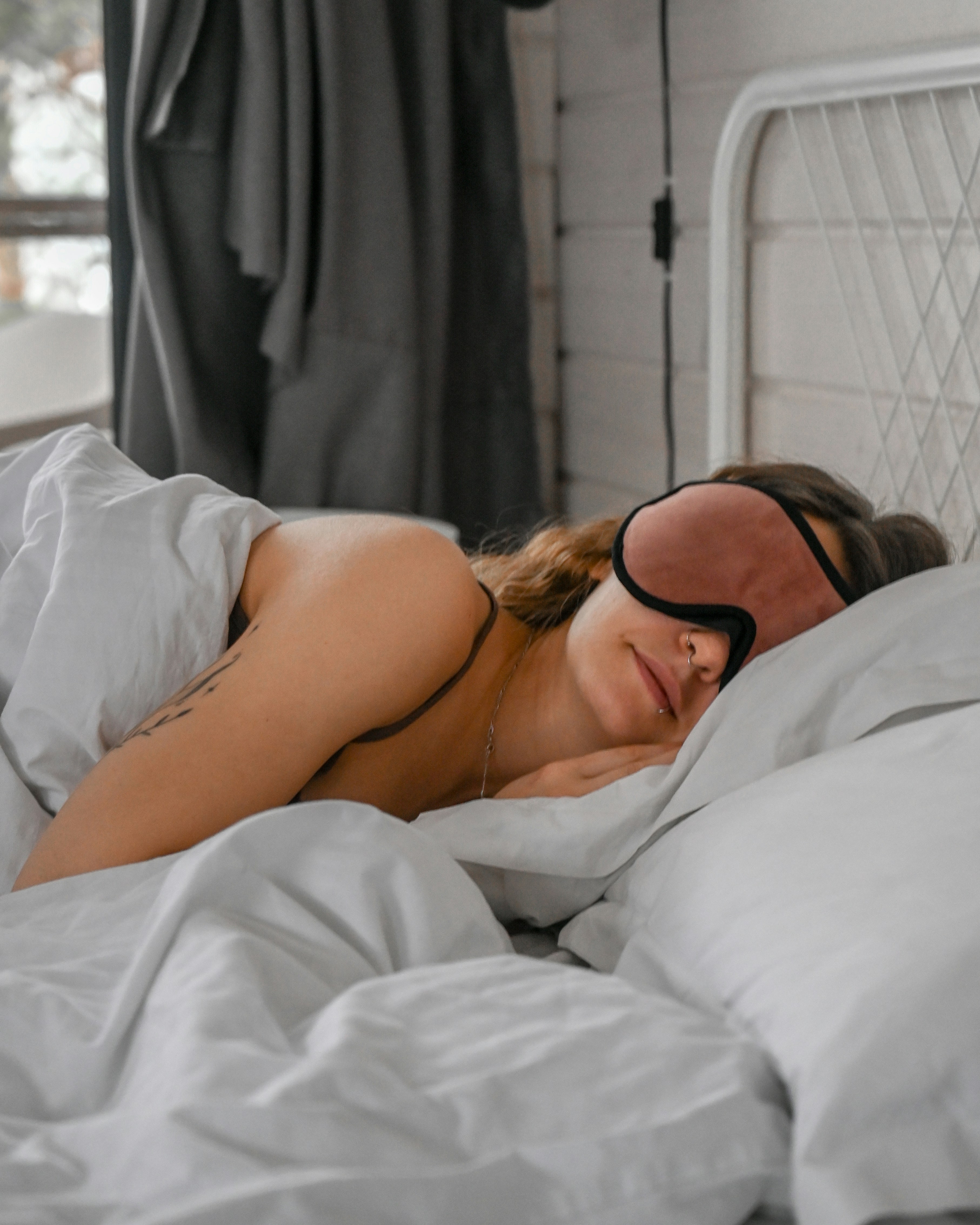Sleep and Weight: How Rest Affects Your Waistline 🛌🍕

Introduction
You might be wondering, “What does sleep have to do with my waistline?” Well, my friend, it turns out a lot! If you’re counting calories, trying to lose weight, or simply trying to fit into your favorite jeans, you might want to start counting ZZZs too. Sleep isn’t just for recharging your energy—it plays a major role in managing your weight, hunger, and metabolism.
In this post, we’re going to explore how sleep can affect your weight, why poor sleep may lead to unwanted pounds, and how a good night’s sleep might just be the weight-loss secret you’ve been looking for. So let’s dive in and find out how catching some extra sleep could be your easiest (and most enjoyable) weight management strategy!
1. Sleep and Hormones: The Weight-Regulation Duo
Your body is run by hormones, and they don’t just control your mood or your energy levels—they also regulate your appetite and metabolism. Yes, you read that right. Sleep (or lack of it) can throw off the balance of hormones that control hunger and fat storage. Here’s the breakdown:
🧠 How Sleep Affects Ghrelin and Leptin
Ghrelin and leptin are two hormones that play a big part in regulating your appetite. Ghrelin, known as the "hunger hormone," tells you when it’s time to eat, while leptin signals to your brain that you’re full and should stop eating. But when you don’t get enough sleep, things get a little... out of whack.
The science : Studies have shown that sleep deprivation increases ghrelin levels and decreases leptin levels, making you feel hungrier than usual and less satisfied after eating. So, a sleepless night could leave you reaching for that second slice of pizza because your body’s “hunger signals” are out of control.
😴 Sleep, Ghrelin, and Leptin: The Unholy Alliance
If you think this is bad, it gets worse. When you’re sleep-deprived, your brain also craves high-calorie foods (like chips, candy, and all the things we know we shouldn’t eat). This is a result of your body seeking a quick energy fix to compensate for the lack of sleep. And guess what? These high-calorie foods do not help you lose weight.
The science : A study published in The American Journal of Clinical Nutrition found that sleep deprivation leads to increased consumption of calorie-dense foods, contributing to weight gain. So, if you’ve ever had the urge to devour a whole pizza after a sleepless night, science has your back (but we still recommend eating more veggies, just saying).
2. Sleep and Metabolism: The Slow Down Effect
Metabolism refers to the processes your body uses to convert food into energy. When you’re well-rested, your metabolism works efficiently, burning calories at a normal rate. But when you’re running on empty (aka sleep-deprived), your metabolism starts to slow down, and your body becomes less efficient at burning calories. Not great news for anyone trying to shed a few pounds!
⏱️ The Impact of Sleep Deprivation on Your Metabolism
Sleep deprivation doesn’t just make you feel groggy—it also messes with the way your body processes food. When you don’t get enough sleep, your body produces less insulin (the hormone that helps process sugar), making your cells less responsive to it. This can lead to higher blood sugar levels and fat storage.
The science : One study showed that sleep deprivation can decrease insulin sensitivity by up to 30%. This means your body becomes worse at processing sugars and carbohydrates, leading to increased fat storage and weight gain. So, skipping sleep could be contributing to that stubborn belly fat!
🔥 Sleep and Fat Burning
Interestingly, sleep is also involved in your body’s fat-burning processes. While you’re snoozing, your body goes into repair mode, burning fat for energy to fuel its processes. But if you’re not getting enough sleep, you’re not giving your body enough time to burn fat effectively.
The science : Research has shown that poor sleep can disrupt fat metabolism and lead to an increase in fat storage, particularly in the abdominal region. So if you're wondering why your muffin top seems to persist despite dieting, inadequate sleep could be a major factor.
3. The Vicious Cycle: Sleep, Weight Gain, and Stress
It’s easy to think of sleep as just a physical rest, but it’s also a mental break. Unfortunately, sleep deprivation doesn’t just make us feel tired—it also increases stress. And guess what stress does? It can increase your waistline, too.
😬 Stress, Cortisol, and Weight Gain
When you're stressed (and who isn't these days?), your body releases cortisol, the “stress hormone.” High levels of cortisol can increase cravings for unhealthy foods, mess with your blood sugar, and encourage fat storage—especially around the belly.
The science : Chronic stress and sleep deprivation can create a perfect storm for weight gain. When cortisol levels rise, your body goes into “fight-or-flight” mode, signaling your brain to crave foods that are high in sugar and fat—exactly what you don’t need when trying to lose weight.
🧘♀️ The Role of Sleep in Stress Reduction
Good sleep, on the other hand, helps reduce cortisol levels and keeps your stress response in check. So, the better you sleep, the less likely you are to feel stressed and overeat. This is why getting enough sleep is essential not just for your waistline, but also for your mental well-being.
The science : Sleep helps regulate cortisol production, which in turn helps reduce the body’s fat-storing response. Adequate sleep can reduce belly fat and help keep cravings in check—making it easier to maintain a healthy weight.
4. Tips for Better Sleep (and a Slimmer Waistline!)
Now that you understand how sleep and weight are connected, let’s talk about how you can use sleep to your advantage in your weight-loss journey.
🕒 Stick to a Consistent Sleep Schedule
Your body thrives on routine. Going to bed and waking up at the same time every day helps regulate your hormones, metabolism, and appetite. It also ensures you get the optimal amount of sleep to help your body function at its best.
🍽️ Avoid Late-Night Snacking
Late-night eating, especially high-calorie foods, can interfere with your sleep and increase the chances of weight gain. Try to avoid eating large meals 2-3 hours before bedtime to give your digestive system time to settle.
🧘♀️ Manage Stress Before Bed
Since stress increases cortisol levels and disrupts sleep, practicing relaxation techniques before bed is a great way to promote better sleep and reduce your waistline. Try deep breathing, meditation, or gentle yoga to unwind.
🍏 Eat a Healthy, Balanced Diet
A balanced diet rich in whole foods like fruits, vegetables, lean proteins, and whole grains will fuel your body and help manage your weight. Avoiding sugary and processed foods will also help you sleep better and prevent unnecessary weight gain.
5. Conclusion: Sleep Your Way to a Healthier You
It turns out that sleep is a key player in weight management. Poor sleep can mess with your hormones, slow down your metabolism, and increase stress, all of which make it harder to lose weight. But the good news is that by getting enough sleep, you can support your body’s natural weight-regulating processes and avoid those extra pounds.
So, next time you’re thinking of skimping on sleep to fit in one more hour of work or Netflix, remember that a good night’s rest might just be the best thing you can do for your waistline. Prioritize sleep, and your body (and your pants) will thank you!
“The best bridge between despair and hope is a good night’s sleep.” — E. Joseph Cossman




